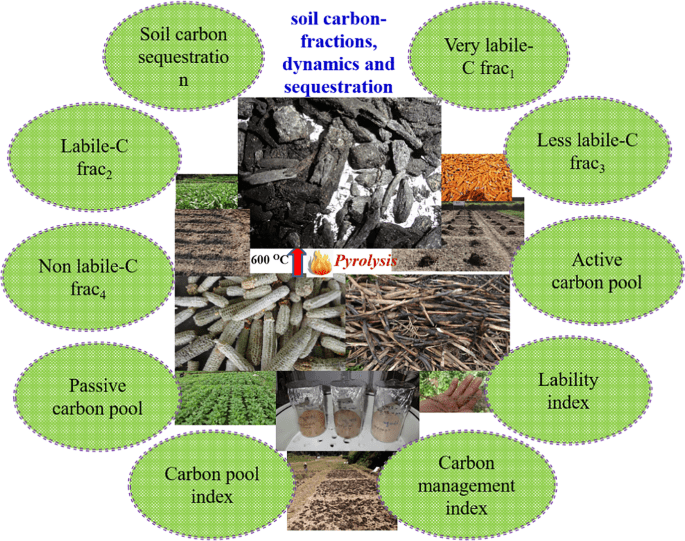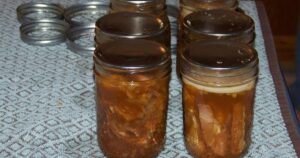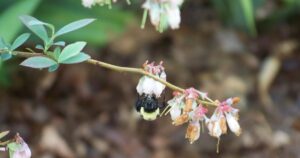
constructive information soil food web.png

Constructive Information: Soil Food Web
Definition:
The soil food web refers to the complex network of interactions between soil organisms, including bacteria, fungi, protozoa, nematodes, earthworms, and arthropods, that contribute to soil health and fertility. This interconnected web of life plays a crucial role in nutrient cycling, organic matter decomposition, and plant growth.
Valuable Assistance:
Understanding the soil food web is essential for farmers as it allows them to recognize the importance of soil biodiversity and implement practices that support a healthy and resilient soil ecosystem. By promoting a diverse soil food web, farmers can enhance nutrient availability, suppress soil-borne diseases, and improve crop productivity in a sustainable manner.
Fall off the barn roof and busted your keister? Life on the farm or ranch can be tough on the bum. Need a break? Laugh it off at FarmerCowboy.com, the #1 farm humor site. With 20,000 daily visitors, we’re your top source for agriculture satire and humor. Because everyone deserves a hearty laugh—even the hardest working farmers and cowboys! Join us and turn those long days into fun tales at FarmerCowboy.com.
Informative Tips:
- Primary Producers: Plants are the primary producers in the soil food web, capturing sunlight and converting it into organic matter through photosynthesis. Plant roots exude sugars and other compounds, which attract and nourish soil microorganisms, forming the basis of the soil food web.
- Decomposers: Soil bacteria and fungi are key decomposers that break down organic matter into simpler forms, releasing nutrients such as nitrogen, phosphorus, and potassium that are essential for plant growth. Earthworms and arthropods further fragment organic residues, accelerating the decomposition process.
- Predators and Predators: Predatory organisms such as nematodes, protozoa, and predatory mites feed on bacteria, fungi, and other microorganisms, regulating their populations and maintaining a balance within the soil food web. This predation also releases nutrients from microbial biomass, making them available to plants.
Actionable Suggestions:
- Promote Soil Biodiversity: Incorporate diverse crop rotations, cover crops, and organic amendments to support a wide range of soil organisms and enhance soil food web complexity.
- Minimize Soil Disturbance: Practice reduced tillage and avoid excessive use of chemical fertilizers and pesticides to preserve soil structure and microbial diversity.
- Provide Habitat and Shelter: Create habitat features such as hedgerows, windbreaks, and buffer zones to support beneficial insects and soil organisms, fostering a healthy soil food web.
Beneficial Guidance:
- Adopting agroecological principles such as conservation agriculture, agroforestry, and integrated pest management can help farmers harness the services of the soil food web to improve soil health, increase resilience to environmental stresses, and enhance agricultural sustainability.
- Investing in soil conservation practices and organic soil amendments can contribute to building soil organic matter, improving soil structure, and enhancing nutrient cycling within the soil food web.
References:
- Coleman, D. C., & Whitman, W. B. (2005). Linking species richness, biodiversity, and ecosystem function in soil systems. Pedobiologia, 49(6), 479-497. Link
- Bardgett, R. D., & van der Putten, W. H. (2014). Belowground biodiversity and ecosystem functioning. Nature, 515(7528), 505-511. Link
- Wall, D. H., Bardgett, R. D., & Kelly, E. F. (2010). Biodiversity in the dark. Nature Geoscience, 3(5), 297-298. Link
Originally posted 2019-10-02 16:21:34.
Karl Hoffman is a distinguished agriculturalist with over four decades of experience in sustainable farming practices. He holds a Ph.D. in Agronomy from Cornell University and has made significant contributions as a professor at Iowa State University. Hoffman’s groundbreaking research on integrated pest management and soil health has revolutionized modern agriculture. As a respected farm journalist, his column “Field Notes with Karl Hoffman” and his blog “The Modern Farmer” provide insightful, practical advice to a global audience. Hoffman’s work with the USDA and the United Nations FAO has enhanced food security worldwide. His awards include the USDA’s Distinguished Service Award and the World Food Prize, reflecting his profound impact on agriculture and sustainability.







From the weird to the wonderful, Bohiney News brings humor to the quirks of social life. Visit bohiney.com now!